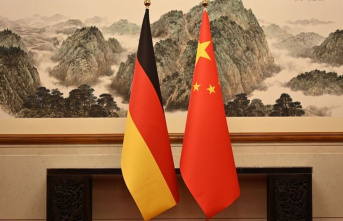The pilot project has sparked a series of volcano emojis by President Nayib Bikel, who declared bitcoin legal tender in September and promised cheap, renewable energy to "mine" bitcoins. These operations have been widely criticized for their large amounts of electricity and carbon footprint.
Bukele and others believe El Salvador's geothermal resources, which generate electricity from the high-pressure steam generated by the volcano's subterranean warmth, could be a solution. The picture in this tiny Central American country is a bit more complicated.
During a Friday tour, Daniel Alvarez (president of the Rio Lempa Hydroelectric Executive Commission), stated that the company does not use resources that could contaminate the environment.
According to Brandon Arvanaghi (a bitcoin mining consultant), the two most important factors in attracting bitcoin mining operations are cheap power and a supportive state.
China supplied about three quarters of the electricity required for crypto mining two years ago. This was because it had cheap hydroelectric energy. However, the government started to restrict mining and declared illegal all transactions involving bitcoin or other cryptocurrencies in September.
This has led to an increase in the number of mining operations being set up in other countries.
Bukele's announcement last summer that bitcoin would be legal tender in El Salvador would seem to have been a stroke of luck. In part, the president sold the plan to Salvadorans who live overseas (mostly in the U.S.) to be able to send more money home to their families. He was also a beloved figure in the bitcoin world.
The launch was not smooth. It was expected that Salvadorans would use the digital wallet to make basic transactions. However, it had a slow rollout. Some users claimed they only wanted the $30 government offered as an incentive. The concern that the digital currency which claims to be controlled by no government will encourage criminal activity continues to exist.
The United States has so far been a major winner in attracting more Bitcoin mining operations, particularly Texas which has abundant renewable energy and a deregulated market.
Bitcoin mining in El Salvador would seem to be supported by a government in Bukele. However, cheap electricity is still a promise.
El Salvador imports around one-fifth to one quarter of its electricity. The remainder of the production is split between hydroelectric, geothermal, and fossil fuel-fired plants.
About 25% of the country's energy comes from geothermal. El Salvador has 23 volcanoes.
Arvanaghi stated that El Salvador could be a good example of this model, adding "renewable sources such as these vast abundant areas" to the mix.
El Salvador's electricity price is currently not very affordable.
The website GlobalPetrolPrices.com, which publishes retail energy prices around the world, puts electric costs to households and businesses in El Salvador well above the global average.
Arvanaghi stated that bitcoin mining encourages the expansion and production of renewable energy by offering high demand for cheap power. He also said that miners have demonstrated that they are willing to pause some of their machines when less power is available.
Bukele's promise to provide cheap power for bitcoin mining would then have to include a subsidy. At least until rates dropped and renewable capacity expands.
Luis Gonzalez, the public policy director of the Salvadoran Ecological Unit, said that if El Salvador is able to produce cheaper, renewable energy, it should be given to the country's people, not to cryptocurrency mining operations.
Gonzalez stated that Gonzalez would prefer for national energy to be the most affordable, cleanest and most efficient for people.
He warned that geothermal advertising as being clean is fraught with dangers. He said that although it is cleaner than using fossil fuels, it has its own risks. Local habitat is affected by the wells that are dug at subterranean heat sources. He expressed concern that geothermal sites could contaminate aquifers.
He said that El Salvador was the country with the most access to water in Central America, and noted that this was the reason El Salvador banned metals-mining four years ago.
Gonzalez stated that many bitcoin mining operations are concentrated in cooler climates, as they require more electricity to run the machines. El Salvador has a tropical climate.
Gustavo Cuellar is the special projects advisor for the Rio Lempa Hydroelectric Executive Commission and oversees the mining operation at the Berlin Geothermal facility, which is located two hours east of the capital. According to Cuellar, the site's specialized mining machines use 1.5 megawatts out of the 102 megawatts produced by the plant. Another 95 megawatts is produced by El Salvador's Ahuachapan geothermal plant.
The plants together provide power for 1.5 million of El Salvador’s 6.5million citizens.
Alvarez stated that the project would grow because of the renewable energy resource. He also said that there is a lot more potential to continue producing energy for mines.








